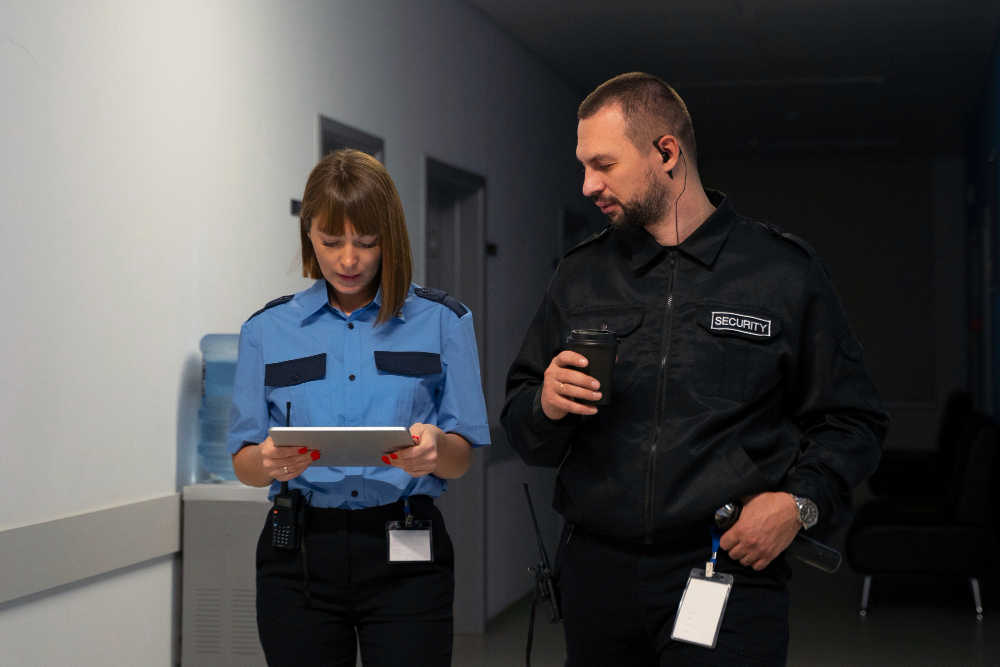
The security industry is evolving to meet the changing dynamics of modern workplaces and public spaces. Among the most notable shifts is the growing role of female security guards, particularly in corporate and retail environments. Their presence not only enhances physical safety but also introduces emotional intelligence, approachability, and professionalism to security services. As organizations focus more on inclusivity, customer experience, and compliance, integrating female personnel has become a smart, strategic move.
Redefining Security Standards: The Growing Influence of Women
The inclusion of women in frontline security roles is challenging long-standing gender norms. Female security professionals are proving themselves to be just as capable—if not more—in managing high-pressure situations, observing behavioral patterns, and diffusing conflicts without escalation. Their contributions are especially crucial in areas that require gender sensitivity, discretion, and effective communication.
Beyond routine tasks, they often take on leadership roles, manage access control systems, monitor surveillance, and contribute to the training of junior staff. By participating in all aspects of security operations, female guards are raising the professional bar and encouraging a more balanced, respectful workplace.
Why Female Security Guards Are Essential in Corporate Settings
Corporate offices serve as professional hubs where employees, clients, vendors, and visitors converge. Ensuring safety in such an environment requires a diverse and well-trained security team, and female guards play a vital role in maintaining not just order, but trust.
Key advantages in corporate spaces include:
- Conducting personal and gender-sensitive checks during entry and exit
- Offering a more comfortable option for female employees to report incidents
- Creating a perception of professionalism and diversity in client-facing areas
- Helping HR and administration in dealing with workplace harassment issues
Additionally, female guards often act as the first point of contact for guests and employees, representing the brand’s values of equality, respect, and modernity. Their presence can also have a subtle but significant impact on workplace culture, promoting mutual respect and reducing incidents of misconduct.
Retail Environments: Where Security Meets Customer Experience
Retail stores, especially in sectors like fashion, beauty, or health, cater to a large base of female and family shoppers. In these customer-facing environments, the role of female guards is twofold: ensuring security and enhancing customer comfort.
Their presence benefits retail settings through:
- Monitoring female-specific zones such as changing rooms
- Responding to customer complaints with calm and empathy
- Preventing shoplifting through discreet surveillance
- Assisting female staff in managing aggressive or inappropriate customer behavior
Female guards in retail are also trained to handle thefts without disrupting the customer experience. They know when to intervene quietly and when to escalate, which is crucial in maintaining the brand’s image. In many cases, customers—even in distress—are more likely to trust and approach a female guard, making them a crucial asset in sensitive situations.
Training, Skills & Professionalism: What Sets Them Apart
Today’s female security professionals undergo the same rigorous physical, tactical, and legal training as their male counterparts. However, many also receive additional training in gender awareness, interpersonal communication, and emergency support that enables them to perform effectively in corporate and retail contexts.
Training may include:
- Conflict resolution and de-escalation techniques
- Crowd management and emergency evacuation procedures
- Legal rights and protocols regarding personal searches
- First aid and trauma response
- Surveillance system operations and reporting
What truly sets many female guards apart is their attention to detail, ability to read social cues, and strong verbal communication, which are essential in environments where diplomacy and customer service go hand in hand with vigilance.
In high-end retail and corporate sectors, where interactions often require a polished approach, female guards combine authority with professionalism—ensuring that security does not compromise the guest experience.
Overcoming Challenges and Promoting Inclusivity in the Workforce
Despite their increasing presence, female security guards continue to face unique challenges. These include societal stereotypes, inadequate infrastructure, and limited shift flexibility due to safety concerns. Organizations must take proactive steps to create an environment that supports, protects, and encourages women in the security industry.
Common challenges include:
- Inaccessible restrooms and changing facilities
- Underrepresentation in supervisory roles
- Bias during duty allocation (e.g., being limited to low-risk posts)
- Lack of safety during travel or night shifts
To address these concerns, employers should offer gender-sensitive facilities, provide safe transport arrangements, and create equal growth opportunities through leadership training and mentorship. Companies that genuinely invest in inclusivity benefit from not only a safer workplace but also a more loyal and motivated workforce.
Conclusion
The presence of female security guards in corporate and retail environments is more than a matter of representation—it’s a practical and strategic necessity. They bring a unique combination of strength, sensitivity, and professionalism that enhances both safety and the overall workplace experience. From protecting people and property to fostering trust and inclusivity, their role is indispensable in the evolving security landscape.
As the demand for gender-balanced security teams grows, businesses that prioritize and support the inclusion of women in frontline roles will not only meet industry standards but also lead the way in building a safer, more equitable future.
